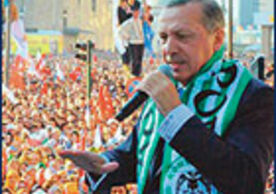As governments confront many challenges that are global in scale, leaders find they must cooperate in responding to financial, climate, terrorism and other crises. As a result, a global audience has developed keen interest in how and why nations select their leaders. On one hand, citizens expect sensible and collective action, transparency and fair representation; on the other hand, citizens and leaders fret about compromising security, sovereignty or loss of control. Diplomats and global organizations like the United Nations aim to achieve a balance, even as global communications allow citizens in democracies or authoritarian states to steer attention to issues. Attention to citizen demands and multilateral cooperation contribute to stability.




